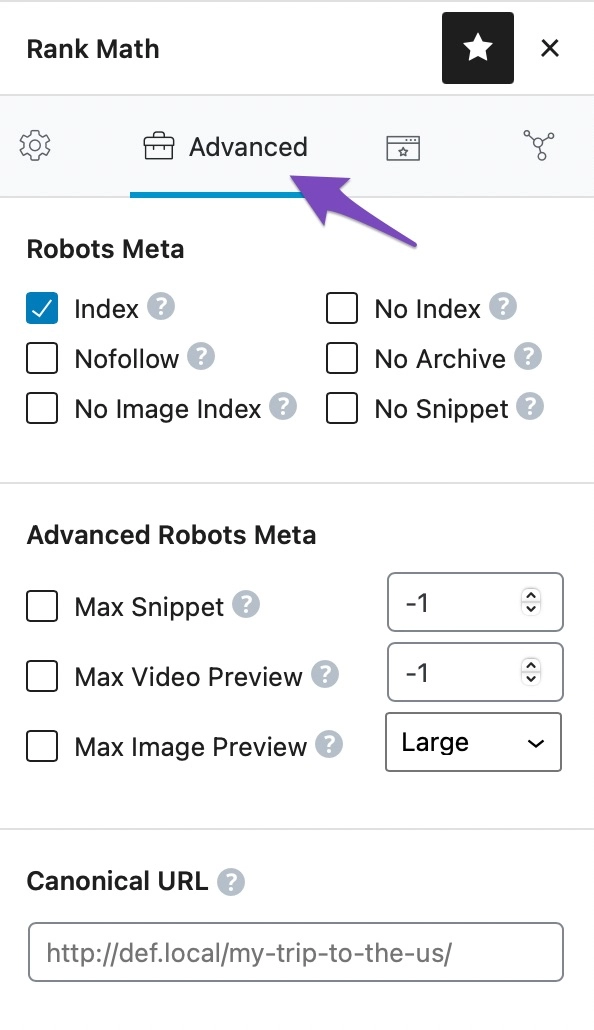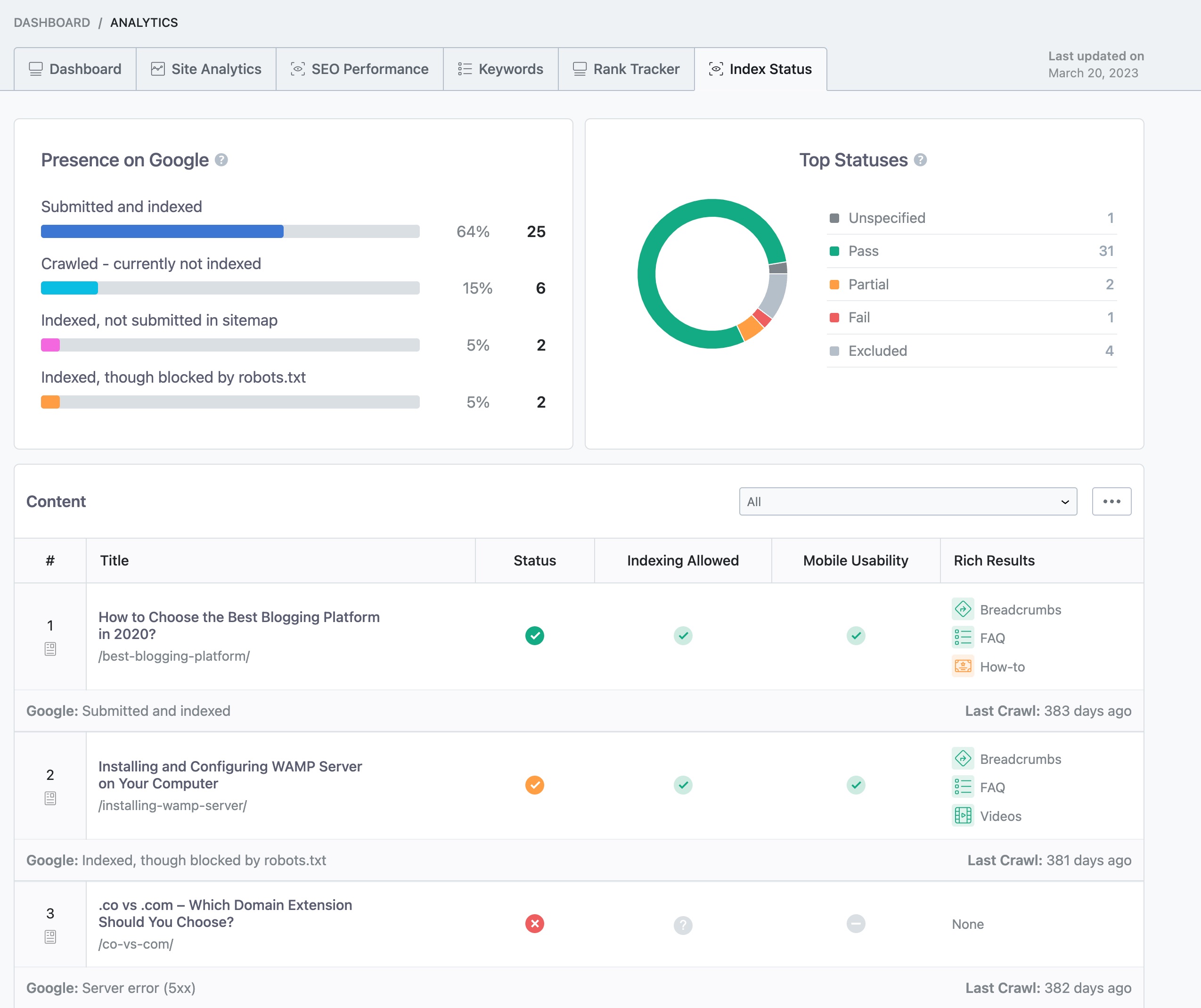When your site disappears from Google, it can feel like the end of the world. Your website is your livelihood, and without it, you’re lost. But don’t despair just yet! There are a few possible reasons why your website might have disappeared from search results.
In this knowledge base article, we’ll explore several possible reasons why your website might have disappeared from Google search, and we will provide tips on how to fix the problem.
Let’s get started!
Table of Contents
What Causes Websites to Disappear from Google Search?
There are several potential causes for why your website might have disappeared from Google search results.
1 You Have Blocked Google From Crawling Your Site
If you accidentally block Google from crawling your site, your website will not appear in search results. For example, you may have accidentally blocked Googlebot from accessing the page, or you may have included a disallow directive in your robots.txt file that is preventing Googlebot from crawling the page.
In order to fix this, you will need to make sure that your website’s robots.txt file is configured correctly. You can use the robots.txt testing tool to check your file and ensure that no directives are blocking Googlebot from accessing your site.
If you find that there are directives in your robots.txt file that are blocking Googlebot from accessing your site, you will need to remove them or replace them with a more permissive one.
You can learn more about How to Fix ‘Submitted URL Blocked by robots.txt’ Error in Google Search Console.
2 Google Has Not Indexed Your Site Yet
If your website is new, it may take some time for Google to index your site. It can take up to a few weeks for Google to index a new website. In the meantime, your website will not show up in search results.
Our Instant Indexing plugin for Google allows you to submit your URLs to Google and helps you to index your website and its content, even without configuring your site with any of these webmaster tools.
3 Security Issues
Security issues can also cause your website to disappear from Google search results. Google may penalize your website if it detects that your site is vulnerable to malware or phishing attacks. In some cases, your site may even be displayed with a warning in the browser or in search results.
The best way to fix this problem is to clean up your website and remove any malicious code or content. You can use the Malware report in Google Search Console to find out if there are any Security Issues on your site.

Once you have fixed the security issues on your site, you can submit a reconsideration request to Google to have your site re-indexed.
4 Your Site Has Been Migrated or Deleted
Another possible reason why your website has disappeared from Google is that it has been moved or deleted. If you have recently changed web hosts or migrated your website to a new domain, it can take Google a few days to update its records. In the meantime, your website may not show up in search results.
If you have deleted your website entirely, it will no longer appear in Google search results. However, If you have recently migrated your website, the best thing to do is wait a few days and see if it reappears in Google search results. If it doesn’t, you need to re-submit your website to Google using the Search Console.
5 Your Site Has Been Penalized by Google
The last possible reason could be your website being penalized by Google. Google may penalize your website for a number of reasons, including but not limited to:
5.1 Using Black Hat SEO Tactics
There are a number of ways to optimize your website for search engines like Google or Bing, but some methods are considered “black hat” because they go against Google’s guidelines. Using black hat SEO tactics can get your website banned from Google entirely.
Some common black hat techniques include:
- Keyword Stuffing: Overloading your website with too many keywords in an attempt to game the algorithm.
- Cloaking: Presenting different content to Google than what users see
- Doorway Pages: Creating multiple pages that all redirect to the same destination
- Link Buying: Paying for links in an attempt to improve your website’s link popularity
If you have been using any of these black hat techniques, it’s time to stop! Google is constantly evolving and getting better at identifying these kinds of tactics, so you’re only setting yourself up for failure in the long run.
5.2 Having Low-Quality Content
In order for your website to rank well in search results, you need to have high-quality, relevant content. Google’s algorithms are designed to surface the best content for users, so if your content is low-quality, it’s unlikely that you’ll rank well.
Google also announced rolling out its Helpful Content Update in its official blog post. This is part of a broader effort by Google to ensure that users see the best content possible in search results.
5.3 Creating Duplicate Content
If you have multiple pages on your website with the same or similar content, Google may view this as duplicate content and penalize your website accordingly. To avoid being penalized for duplicate content, make sure that all the content on your website is original and relevant to your target audience.
If you have pages with similar content, you can use canonical tags to tell Google which page is the original and should be ranked.
The good news is that Rank Math SEO WordPress plugin makes it easy to change the canonical URL using the meta box (as pictured below).

By default, Rank Math makes use of the current post/page URL as the canonical URL, so you would only need to alter this setting if you wish to change it to something else.
In order to check if your website has been penalized, go to your Google Search Console account and look for the Manual Actions report. If you see any messages from Google in this report, it means that your website has been penalized.

Once you know why your website has been penalized, you can take steps to fix the problem. Google provides some guidance on how to fix common penalties, such as those for black hat SEO tactics and low-quality content.
Improve Google’s Ability to Find and Crawl Your Site
1 Submitting a Sitemap
A sitemap is a list of all the pages on your website that you want Google to crawl and index. By submitting a sitemap to Google, you can help them find and crawl all the pages on your website.
Tip: Rank Math automatically creates a Sitemap Index for your website, and it is available at https://yourdomainname/sitemap_index.xml. As the name suggests, it is an index of all the sitemaps on your website. When you submit the Sitemap Index to the search engine, they can automatically pull out all the sitemaps on your website so that you don’t have to submit each sitemap manually.
2 Monitor Your Site’s Indexation Status with Search Console or Index Status Report in Rank Math’s
The Google Search Console is a free tool that allows you to monitor your website’s indexation status. It also shows you any errors that Google has encountered while trying to crawl and index your site.
Similarly, you can also use the Index Status report in Rank Math’s Analytics to identify the pages with the problem.
To do so, navigate to Rank Math SEO → Analytics in the WordPress dashboard. Next, click on the Index Status tab. Under this tab, you’ll get the real data/status of your pages as well as their presence on Google.

Both of these tools are essential for keeping an eye on your website’s indexation. If you see any errors, make sure to fix them as soon as possible.
Conclusion
These are some of the most common reasons why your website may disappear from Google search results. If you find that your website is not appearing in search results, make sure to check for these issues and fix them as soon as possible. If you have any doubts or questions related to this matter, please don’t hesitate to reach out to our support team. We are available 24×7, 365 days a year, and are happy to help you with any issues that you might face.